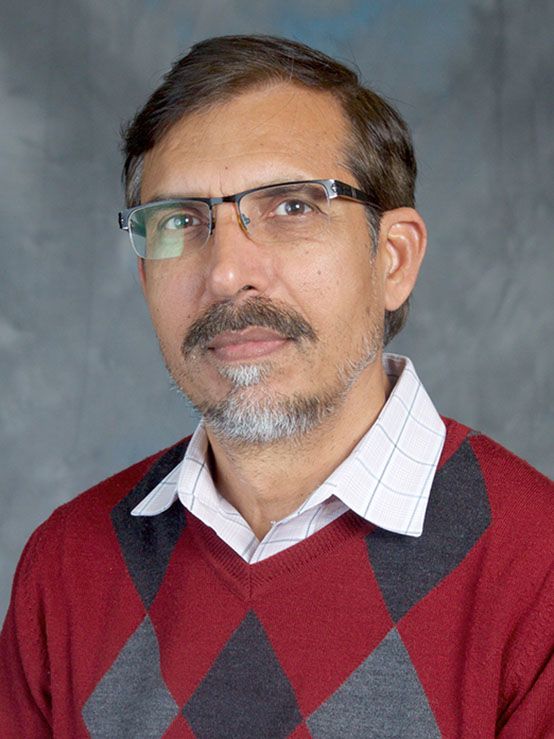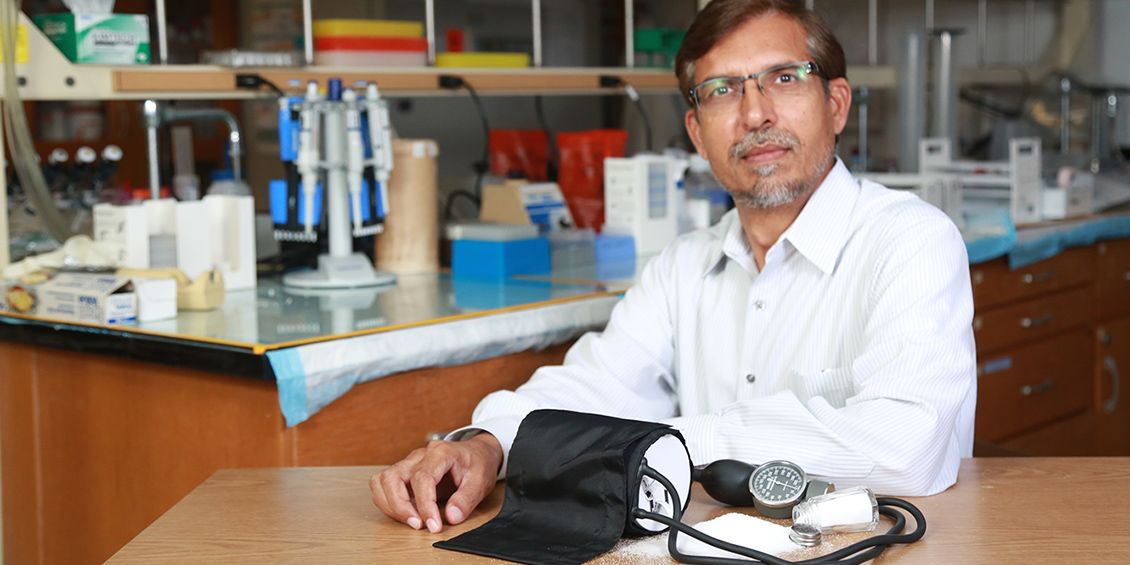Solving World-Wide Problems in Houston
Improving the quality of life for humans around the world is a tall order, yet Tahir Hussain is working on it.
Hussain is associate dean for research and graduate programs and the Joseph P. and Shirley Shipman Buckley Endowed Professor for the Heart and Kidney Institute at University of Houston. He is also a professor of pharmacology and director of the Heart and Kidney Institute at the UH Department of Pharmacological and Pharmaceutical Sciences.
In his multiple roles as a professor and researcher, his primary focus is to understand how immune and kidney epithelial cells interplay between the cell types in AT2R-mediated protective effects. In plain English, he studies how certain properties of cells can protect kidney disease patients against hypertension and kidney damage. And many times, kidney disease is caused by obesity.
Hussain notes that obesity is an epidemic around the world and especially in the United States. “Currently, 50% of the population here is overweight, and 30% to 35% are obese. Obesity is the mother of many diseases. Promoting research here promotes and recognizes a cause that is important to humanity.
“Kidney disease is directly related to obesity, hypertension and diabetes,” Hussain said. “Once kidney disease starts, it doesn’t stop. You can slow it down by reducing the risk factors, but you can’t stop the chronic disease which ultimately leads to end stage kidney disease and failure. We are learning how the AT2 Type receptors activate to protect the kidney by reducing inflammation, which is a major part of injury. We also reported that the receptor activation reduces body weight and lowers blood pressure.”
Hussain’s endowed position began in 2018 and was renewed last September. “Endowment is important because our work is to improve the quality of life of our fellow human beings,” Hussain said. “By recognizing the hard work of researchers, it promotes the cause. That, in turn, improves the quality of life. Health care has no borders, so the research we conduct will benefit the whole world.”


